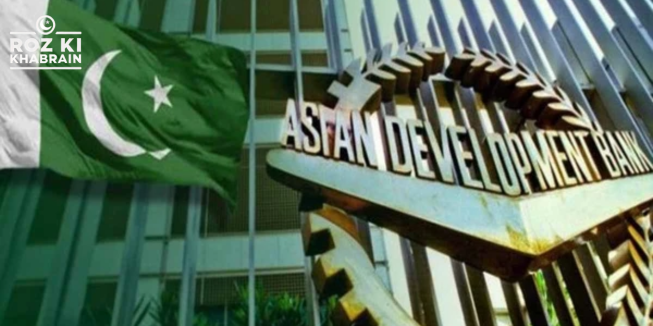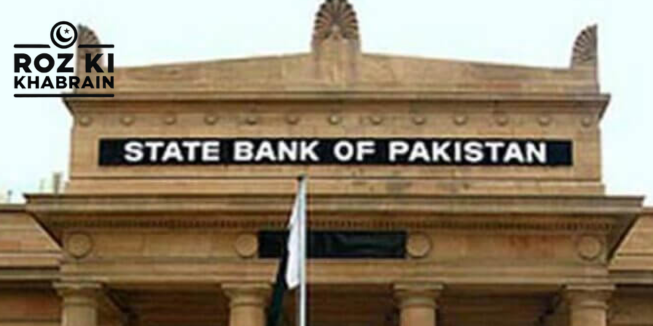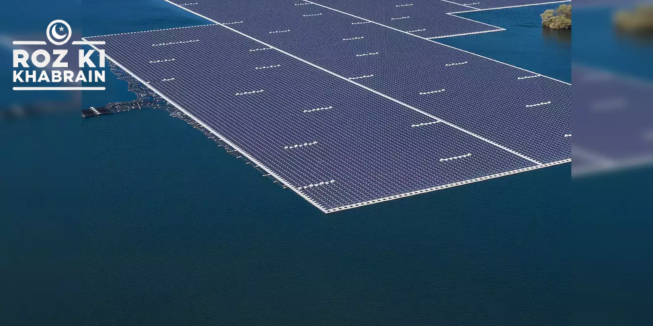ISLAMABAD:
On Wednesday, the Asian Development Bank (ADB) revised its growth forecast for Pakistan, raising it to 3% while lowering its inflation prediction to 10%. This revision is attributed to a rebound in industrial activities driven by relaxed import restrictions and improved access to foreign exchange.
In its flagship publication, Asian Development Outlook, the Manila-based bank highlighted that Pakistan’s agriculture sector is expected to weaken due to poor yields in key cash crops such as wheat and cotton. Despite the improved outlook, the 3% growth rate remains below the government’s target of 3.6%, suggesting challenges in meeting major macroeconomic goals.
The ADB report was released on the same day the bank approved two new loans for Pakistan, totaling $530 million. These loans aim to provide cash assistance to the Benazir Income Support Programme (BISP) beneficiaries and support improvements in Pakistan’s power distribution network.
The ADB’s growth projection for the fiscal year 2024-25 has been revised upward to 3%, from the earlier estimate of 2.8% in September, though still falling short of the government’s target. The bank indicated that the approval of a new International Monetary Fund (IMF) program in September is expected to bring greater macroeconomic stability and support recovery. It noted that industrial output growth is anticipated to accelerate, aided by the suspension of import management measures, improved investor confidence, and easier access to foreign exchange. Additionally, a more accommodative monetary policy, driven by easing inflationary pressures, is expected to stimulate economic activity through increased private investment.
However, the ADB forecasted a downturn in agriculture due to heavy monsoon rains in July–September 2024, which led to flood-like conditions in parts of the country. Both wheat and cotton crops are expected to underperform this fiscal year.
The ADB also revised Pakistan’s inflation forecast for fiscal year 2024-25 to 10%, down from an earlier estimate of 15%. This revision comes after consumer price index (CPI) inflation decelerated to a six-year low of 4.9% in November, thanks to high base effects, reduced demand-side pressures, improved food supplies, more favorable global commodity prices, and delayed upward adjustments in administered energy prices.
The ADB also pointed to a sharp drop in rice prices in October following India’s decision to lift its export ban on non-basmati white rice in late September. This move intensified competition, leading to a fall in rice export prices from Thailand, Vietnam, and Pakistan.
In the same report, the ADB downgraded India’s growth forecast from 7.2% to 7%, citing weaker performance in the manufacturing sector and slower government spending.
The report also noted that Asia and the Pacific’s economic growth would remain stable in the short term, though potential policy changes under U.S. President-elect Donald Trump could affect the region’s long-term outlook. Changes in U.S. trade, fiscal, and immigration policies may slow growth and add to inflationary pressures in developing Asia. These effects are expected to materialize gradually from 2026, though earlier impacts could arise if policies are implemented quickly.
Loan Approvals
The ADB approved $330 million in additional financing to enhance Pakistan’s social protection programs, specifically the Integrated Social Protection Development Programme (ISPDP). The program aims to expand social protection at the grassroots level, focusing on alleviating poverty among poor women and families. It will also enhance the institutional capacity of BISP, enabling it to adapt to climate-related challenges and improve access to education, health services, and nutrition in disaster-prone areas.
The ADB also approved a $200 million loan to modernize Pakistan’s power distribution infrastructure. The Power Distribution Strengthening Project will upgrade systems to meet growing electricity demand. The project’s first phase will support three major distribution companies—Lahore Electric Supply Company (LESCO), Multan Electric Power Company (MEPCO), and Sukkur Electric Power Company (SEPCO)—and includes the installation of advanced metering systems, data management tools, and performance monitoring systems across various grid stations. These upgrades will reduce transmission losses, enhance revenue collection, and provide real-time data on electricity consumption and grid performance, helping improve efficiency.




